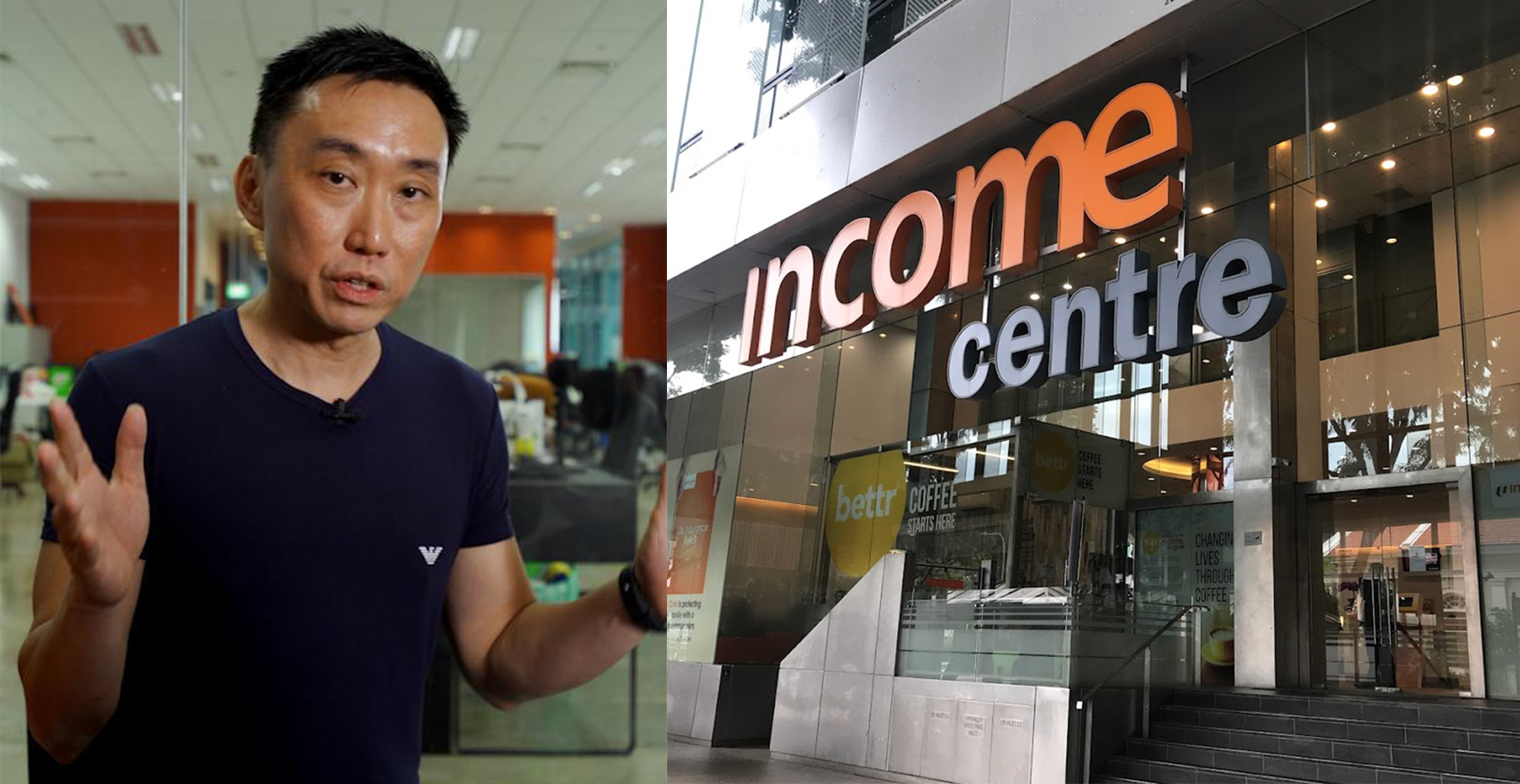If something that worked in the past is no longer relevant now, it should be gotten rid of, said former Nominated Member of Parliament Calvin Cheng.
He was speaking to Mothership in a Jul. 26 interview about the potential sale of Income Insurance to German insurer Allianz.
The foreign entity on Jul. 17 announced its plans to buy a majority stake of the formerly NTUC-owned insurer, raising an outcry online.
A history of Income
In 1970, Income — then known as NTUC Income — was established to "plug a social need for insurance".
This was a message reiterated by Tan Suee Chieh, former Group CEO of NTUC Enterprise and CEO of NTUC Income, who wrote in a Facebook post that Income aims not to maximise profits, but rather social impact.
Cheng recognised this, saying:
"Very importantly, there was a social mission to provide workers — especially unionised workers — affordable insurance, with good coverage, to make sure that their healthcare needs were looked after if they ever fell sick...or passed away and weren't able to leave something for their family."
Fast forward to today, and Singapore has over 30 private insurance companies. Income, having been corporatised in 2022, is one of them.
While it has retained its social mission, Cheng pointed out that it is "no longer always the cheapest, most affordable insurance".
"If you look at a lot of the comparison plans, [Income] does not fill that niche anymore," he said.
He said that having looked at some of the insurance plans, Income's plans are seldom the cheapest — and in fact in some cases are among the more expensive ones.
"So I don't think the role that they play now is the same as the role they played in 1970."
Necessity in crisis?
Outside of the social mission, part of the outcry also revolves around Income playing a role in helping to regulate insurance premiums in Singapore.
Former GIC economist Yeoh Lam Keong said in a Facebook post objecting to the sale that Income could be "strategically key" in controlling healthcare insurance costs in the public's interest.
However, Cheng argued, given that Income's plans are not always the cheapest — "I'm not sure if [such a function] is true".
Furthermore, while government-linked organisations may be useful in times of crisis — "black swan events" — companies should not plan normal operations around abnormal occurrences, he said.
He gave the example of supermarkets: Fairprice, another cooperative under NTUC, no longer necessarily provides the cheapest food, especially the non-essential items, and could also some day be sold off, he said.
"I don't know whether Fairprice is playing the same role as it did 50 years ago, when the whole idea of supermarkets was still very, very new.
Now we have Cold Storage, we have Jason's, we have Sheng Siong...so there might be the argument that one day, once it fails to fulfil the social mission it was originally created for, there's no reason why it shouldn't be sold.
Fairprice did play a role in making sure prices were not too high [during Covid-19]...but during black swan events in extreme times, the government has other levers to make sure that prices remain reasonable."
A matter of sentiment
Outside of function, ultimately, Cheng believes that it boils down to one matter: sentiment.
"[It is] the older people who actually remember NTUC Income back in the day who are upset [about these plans]," he said.
"So they are very upset that a Singapore historical company, that used to fulfil a social mission, is being sold to a foreign company."
He brought up the fact that many older Singaporeans' argument for keeping Income is that it, along other similar homegrown companies, are "national treasures".
"I don't think this is a robust argument for keeping anything," he remarked.
"A national treasure would be like the Taj Mahal, or the Forbidden Palace. I don't think an insurance company can be called a national treasure...at the end of the day, we even sold Raffles Hotel."
There are some organisations worth keeping. Singapore Airlines, for example; Cheng believes that having a national carrier ensures that that Singapore's connectivity "cannot be blocked by other countries".
"[But] there's a national logic to that," he said.
"It's nothing to do with sentimentality."
Catering to the old
The former NMP also sees another plane to this discourse. And that's politics.
Older Singaporeans, more than their younger counterparts, are those who appear more passionate about the Income situation.
This has implications. And whether to sell or not, Cheng explained, is "a challenge for the government".
"The older generation...they're actually the PAP's vote bank," he said, adding that younger people "tend to skew more liberal".
In greying Singapore, there is the concern that to amass votes from the majority demographic, the ruling party of the day might end up prioritising their desires at the expense of the young, Cheng said.
"Because sometimes these desires are mutually exclusive," he explained.
"By definition, the young are the future. And what they wish for Singapore would be what they want for the future of Singapore. Whereas an older voting bloc would be thinking about themselves, and their needs."
If we're not careful, Singapore might end up becoming a gerontocracy, a country governed by old people or governed by the desires of old people, he added.
In the end, the Income issue alone is unlikely to harm young Singaporeans, he said.
But the point is that we shouldn't let sentimentality, nostalgia, and things that worked in the past hold us back now, Cheng stressed.
"Nothing is a sacred cow," he said.
"If [something] isn't achieving the aims that it was meant to achieve, or if those aims have become irrelevant, then let's stop being stubborn about it.
Let's stop being rooted in the past."
Top image by Mothership and from Alan Yeo/Google Maps
If you like what you read, follow us on Facebook, Instagram, Twitter and Telegram to get the latest updates.



